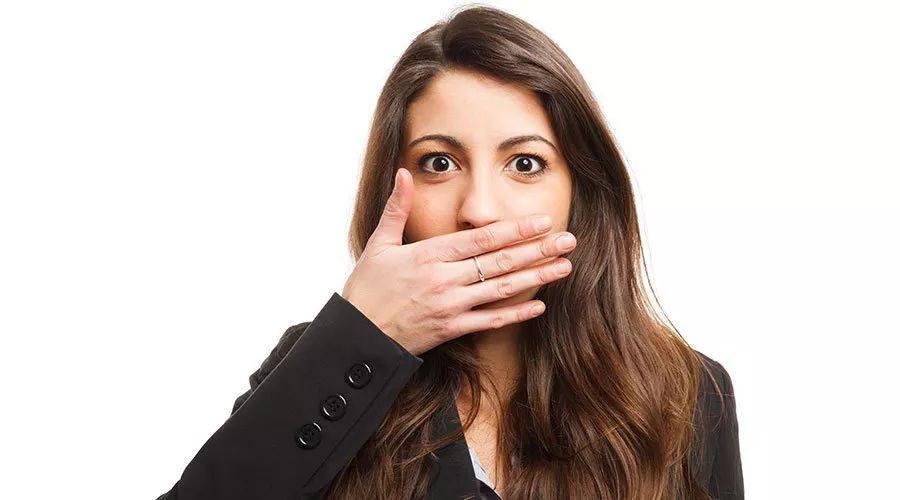On weekdays, social activities are essential.
Today, let’s talk about the secret of social occasions-halitosis!
What has bad breath?
Halitosis, there are two kinds of conditions.
One is the people in the street who use foul language. Usually we also say, “Why is your mouth so smelly?” Of course, what we are going to talk about today is another kind: it is the unpleasant smell released from the mouth.

Halitosis troubles many people because it seriously affects social activities. Imagine going out with a beautiful girl, wearing a suit and tie, and behaving appropriately. As a result, when you open your mouth, no one lives is within two meters of each other, and the other party is embarrassed to tell you.
The American Dental Association has investigated that more than 90% of dentists have met patients seeking treatment for halitosis, and half of doctors meet more than 6 patients claiming to have halitosis every week.
Guess how many people have bad breath in China? In China, some scholars have also conducted research. About 20% ~ 30% of the Chinese people have halitosis.
Where does halitosis come from?
Many people think that halitosis is caused by bad gastrointestinal tract, but it is not: more than 80% of halitosis comes from the oral cavity itself, which we call oral halitosis.
Halitosis, to some extent, is [bacteria are farting].
Some bacteria in the oral cavity will catabolize proteins in food and continue to decompose some sulfur-containing amino acids to produce unpleasant gases, namely volatile sulfides.
These volatile sulfides are a bit like [hydrogen sulfide with rotten egg smell] we have learned. In addition to hydrogen sulfide, there are sulfur-containing gases such as methyl mercaptan and dimethyl sulfur, which are the direct sources of most halitosis.
Therefore, it becomes very important to find the source of halitosis. The first step is to find out where these bacteria are hiding.
The best place bacteria like to hide is to eat and sleep.
There is food. For bacteria, human food residue is their good meal. Sleep is a place that is not easily disturbed by the outside world, especially where toothbrushes cannot be brushed and saliva flows.

Thick tongue coating, huge wormholes, dental calculus around teeth, dilapidated dentures, gaps between porcelain teeth and natural teeth… These places can let bacteria live and work in peace and contentment. Here, some bacteria metabolize food and continuously release bad smell.
There are also some small partners who smoke for a long time and use antibacterial drugs (including mouthwash containing antibacterial drugs) for various purposes for a long time, which will also lead to changes in the types and proportions of bacteria in the oral cavity, killing good bacteria but leaving odor-producing bacteria in some sanitary dead corners. Therefore, the prevention of these behaviors will also have the effect of preventing halitosis.
The remaining part of halitosis does not originate from the oral cavity, which is called non-oral halitosis. Let’s put it aside and not talk about it today.
Halitosis can also be divided into true and false
Myopia has true myopia and pseudo myopia. But you may not think that halitosis is the same, with true halitosis and pseudo halitosis. The halitosis mentioned earlier is [real], [can smell] halitosis, and what kind of fake halitosis is?
It is true that there are opportunities to meet such patients in clinical admissions. In fact, in the eyes of ordinary people, there is no halitosis symptom, but the patient himself feels that he has halitosis, which is related to his psychological pressure and mental factors, or academic circles call it [halitophobia]. This quoted halitosis may not only need the help of stomatologists, but also need the intervention of psychologists.
Is chewing gum really useful?
Everyone must have seen a lot of chewing gum advertisements. Chewing gum is still helpful for fresh breath, mainly through two aspects.
First, of course, chewing gum itself has a strong taste and can cover up some odor.
Second, chewing gum can promote saliva secretion. The benefit of a large amount of saliva secretion is that it can wash away some food residues. Bacteria lack the substrate for fermentation, which will of course reduce the amount of halitosis.
During social emergencies, there are also some fragrant breath fresheners that can be used to cover halitosis.
However, to be exact, the effects of chewing gum and breath freshener are very short-lived. If you want a long-term healthy breath freshener, you should go to the stomatology department to check it carefully.
